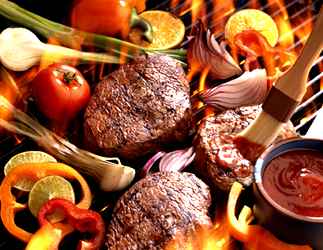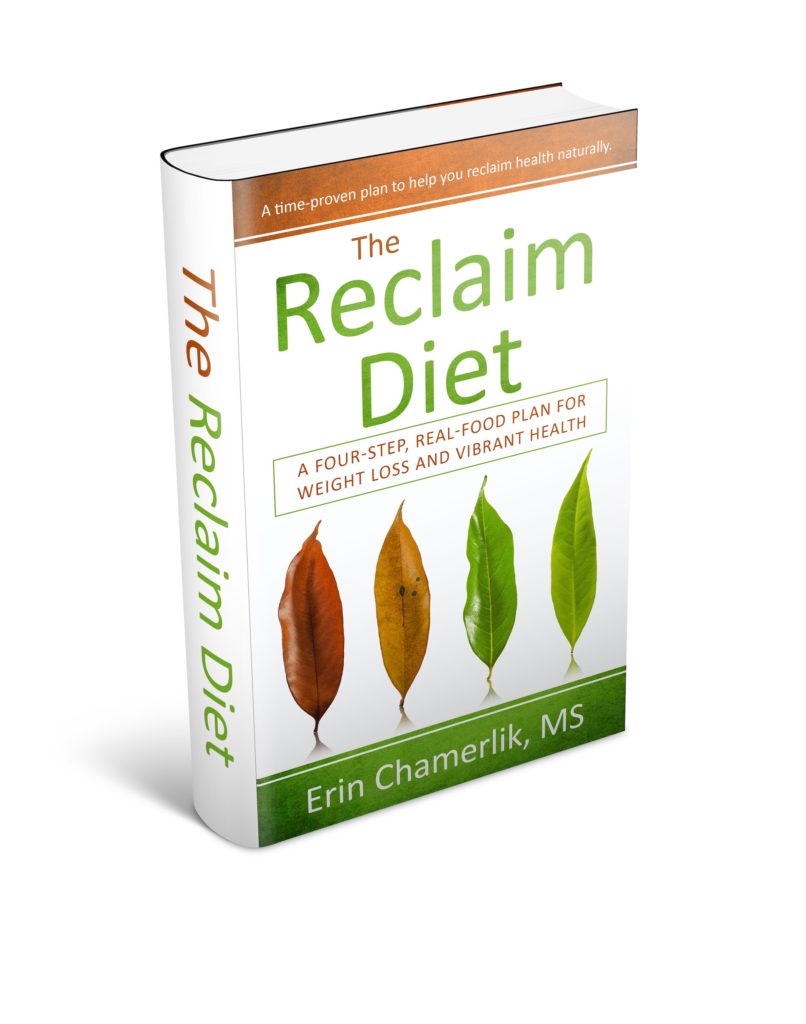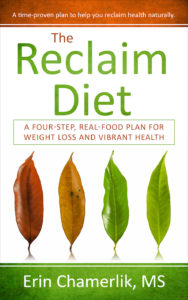
Quality Animal Protein
Fish, chicken, meat and eggs are the best sources of all the essential amino acids that your body requires. This plan is considered a moderate protein diet. It is not a high protein diet, which can be hard on the body. Moderate protein is about three or four ounces of meat, fish or chicken per meal (that’s about 20-30 grams of protein per meal). Having just one egg will not give you adequate protein, since one egg only has about 7 grams of protein. Instead, it is better to eat two or three eggs with some breakfast sausage and veggies cooked in butter or coconut oil.
Most people need 60 to 90 grams of protein per day. To determine how much protein you require, use the following calculation: Ideal body weight in pounds (what you would like to weigh as a perfectly healthy, lean person) divided by 2.2 = your weight in kilograms (kg). Daily, consume 1.2 to 1.7 grams of protein per kilogram of body weight. Divide your daily protein intake among three meals. Pregnant women, athletes and men typically need a little more protein.
There is an online calculator to help determine your ideal body weight in kilograms. Visit ClinCalc.com and look for the “Ideal Body Weight Calculator.”
Some people, especially older adults, have trouble digesting animal protein. If you experience frequent bloating, nausea, constipation, bad breath, body odor or feel sluggish after eating, you may not be properly digesting protein. The key is to supplement with digestive enzymes and betaine HCl capsules at meals containing protein. These supplements help with the breakdown of protein so that the body can utilize the nutrients efficiently.
Here are the benefits you will enjoy by including animal protein in your meals:
- provides all nine essential amino acids required by the body
- functions as building blocks for the body’s framework, skin, hair, nails, muscles, organs and ligaments
- keeps blood sugar levels stable
- reduces carbohydrate cravings
- spikes energy levels and increases fat metabolism
- increases satiety and sustains muscle during weight loss
- favorably influences metabolic rate to benefit weight loss efforts
- provides amino acids from which the body makes the happy brain chemicals called neurotransmitters
- strengthens the immune system, providing adequate zinc and protein to make antibodies
- provides raw materials for the body to make hormones and enzymes
- transports oxygen to the body’s tissues as hemoglobin, the iron-containing protein in red blood cells
- provides a higher quality, more digestible source of protein over plant protein
Keep reading: Get The Reclaim Diet book

Recommended
-
Dandelion for Liver Support and Health BenefitsJuly 20th, 2024
-
Modified Citrus PectinJuly 11th, 2024
-
Bentonite Clay Mask for Face and ArmpitsJuly 8th, 2024
-
Two Supplements for Erectile DysfunctionJune 30th, 2024








